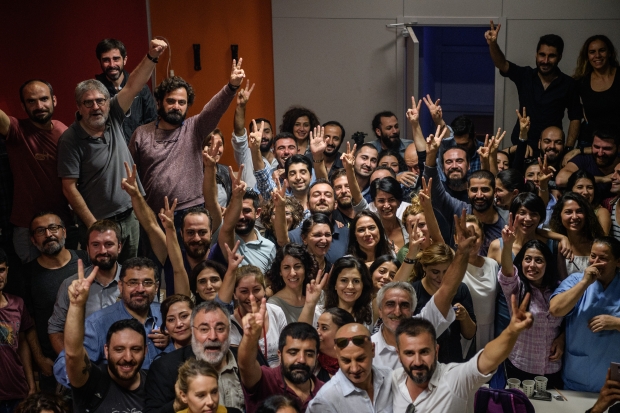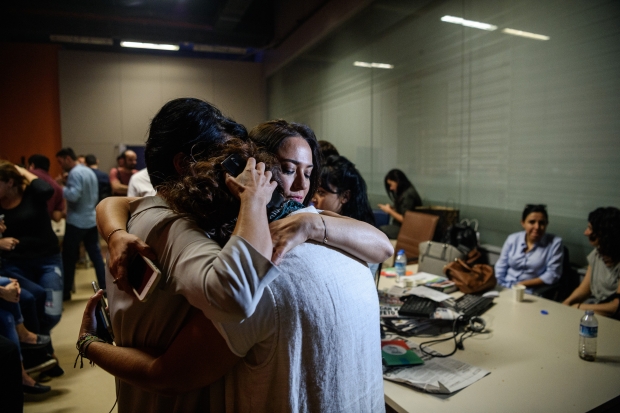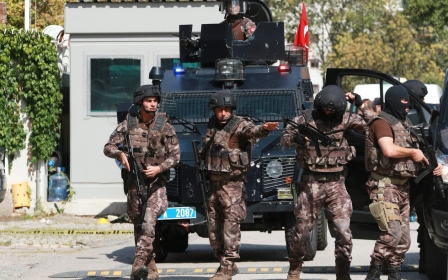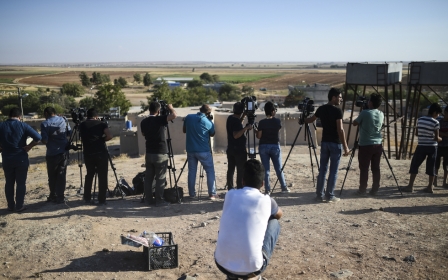Turkish police shut leftist and pro-Kurdish TV stations
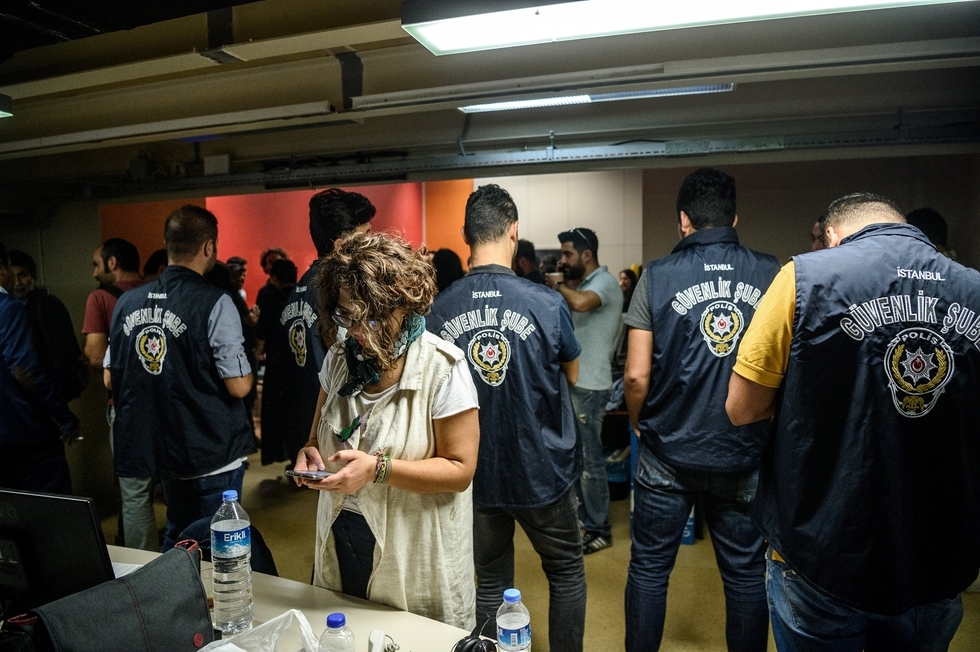
ISTANBUL, Turkey - Turkish police on Tuesday raided the offices of two television stations that were among a dozen ordered to be taken off air via a state of emergency decree.
The raid was conducted on the offices of the Hayatin Sesi and IMC television channels in Istanbul. Both were among the more than dozen broadcasters taken off the Turksat satellite in September. IMC was continuing to broadcast via the Hotbird satellite and online media networks like YouTube.
The Hayatin Sesi building was placed under lockdown after the raid, so nobody could access the premises.
Police also raided the master control room of IMC TV, while they were live via Youtube.
Murat Baykara, the morning news presenter at IMC, had just handed over to his colleague when police arrived.
He told Middle East Eye the raid was non-violent, but nevertheless a huge blow to press freedom.
“The police were there only to protect the state administrators as they began the process of confiscating all broadcast equipment. The officials wanted to ensure that we are unable to broadcast by any means,” Baykara told MEE.
“They didn’t attempt to arrest or take any staff members away.”
IMC alone has around 150 staff members who will now be out of work. Once state-appointed officials take stock of all assets that belong to the company, the premises will be sealed off.
The IMC and Hayatin Sesi channels were known for their strong opposition to the policies of the ruling AKP party. The left-leaning broadcasters have staunchly opposed both the domestic and international policies of the government.
Baykara said IMC staff were all just sitting there in solidarity with management while the process is underway.
“Nobody is stopping us from leaving. But we know it will be the last time we are here in this way at least. No one wants to be the first one to leave.”
Hundreds of demonstrators gathered in Istanbul late Tuesday to condemn the closing of IMC TV, AFP reported.
Protesters shouted: "IMC TV cannot be shut down" and "All together against fascism", AFP correspondents said.
Also among the channels closed previously was Zarok TV, Turkey's first Kurdish-language children's channel, which was shut down on 28 September.
On Monday the government announced a three-month extension to the state of emergency introduced on 20 July after a failed coup bid on 15 July.
The state of emergency allows the government to bypass parliament and rule by decree. It also provides expanded powers to police and governors such as permitting extended detention periods and making it easier to obtain search and arrest warrants.
Turkish authorities had insisted that the state of emergency powers would be used to root out followers of the US-based cleric Fetullah Gulen in various state structures.
The government considers Gulen and his followers to be the orchestrators of the 15 July coup attempt.
Widening crackdown
However, concerns have grown that the government is using the state of emergency to go after all its opponents, even if they have no links to the Gulen movement.
After an initial wave of arrests that targeted journalists who worked at Gulen-linked media, the crackdown on media was broadened.
Concerns have also grown about a renewed attack on press freedoms as a host of left-wing and pro-Kurdish media outlets have become targets of state of emergency decrees.
Turkish officials say they target only those media which act as mouthpieces for groups involved in terrorist activities such as the Kurdistan Workers’ Party (PKK).
Detractors accuse the government of using such language as a pretext to silence opposition.
At the heart of the issue behind the jailing of many pro-Kurdish and left-wing journalists is the wide-ranging definition of terrorism in Turkish law.
The same law has also proved a major stumbling block in Turkey’s bid to obtain visa-free travel to the Schengen zone in the European Union.
The EU has demanded that Turkey narrow the scope of what constitutes terrorism. Ankara has refused to do so and stated it needs a broad definition due to its fight against terrorism on multiple fronts.
Kemal Kilicdaroglu, the chairman of the Republican People’s Party (CHP), on Sunday didn’t mince his words on the state of press freedoms in the country.
“We have imprisoned writers, journalists and artists. We are actually living in an open-air prison, but we will continue to resist,” Kilicdaroglu said at an event in the capital Ankara.
According to the Turkish Journalists Association, more than 100 journalists have been arrested since the 15 July coup attempt, while 2,500 were left jobless and 660 saw their press cards cancelled.
New MEE newsletter: Jerusalem Dispatch
Sign up to get the latest insights and analysis on Israel-Palestine, alongside Turkey Unpacked and other MEE newsletters
Middle East Eye delivers independent and unrivalled coverage and analysis of the Middle East, North Africa and beyond. To learn more about republishing this content and the associated fees, please fill out this form. More about MEE can be found here.


